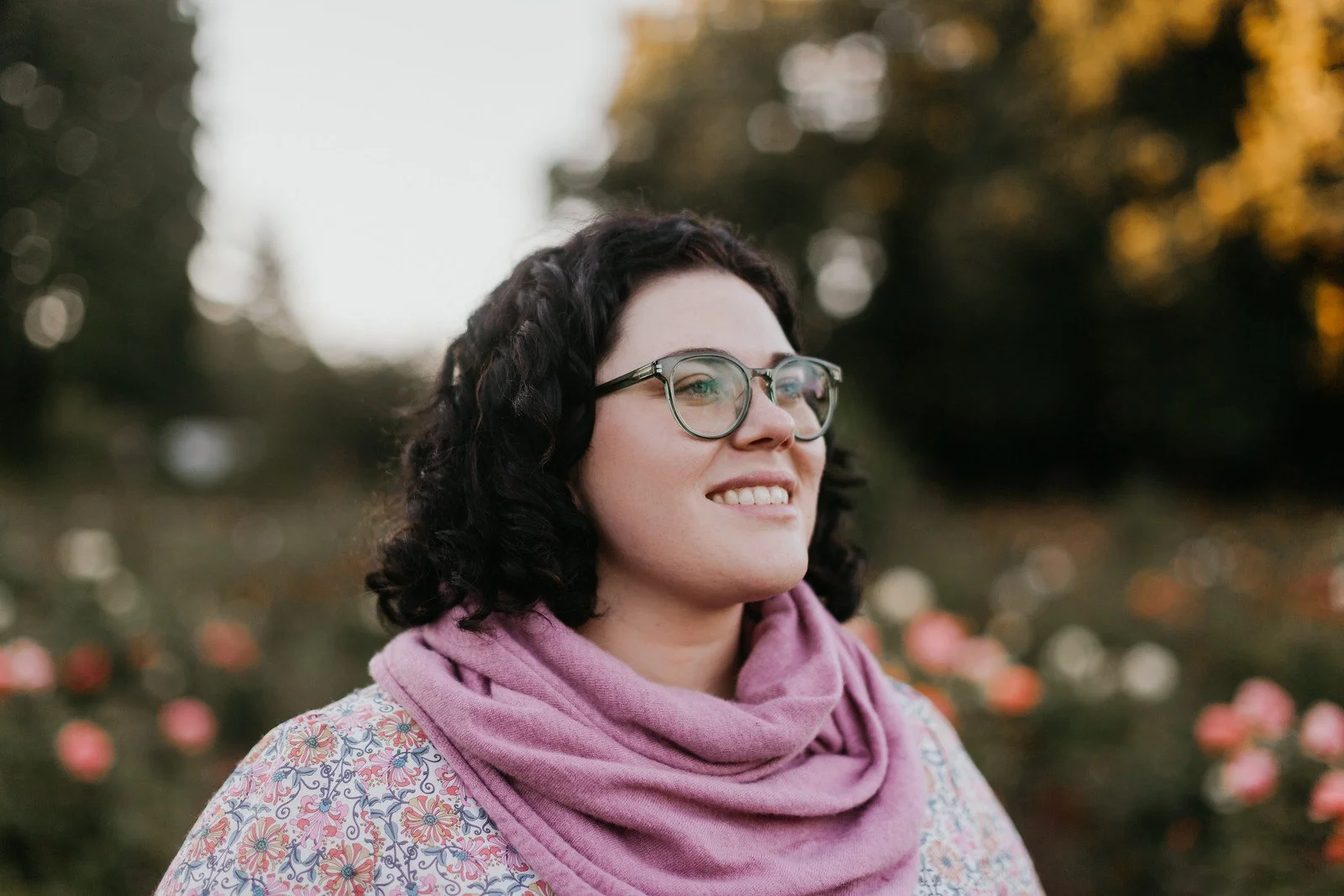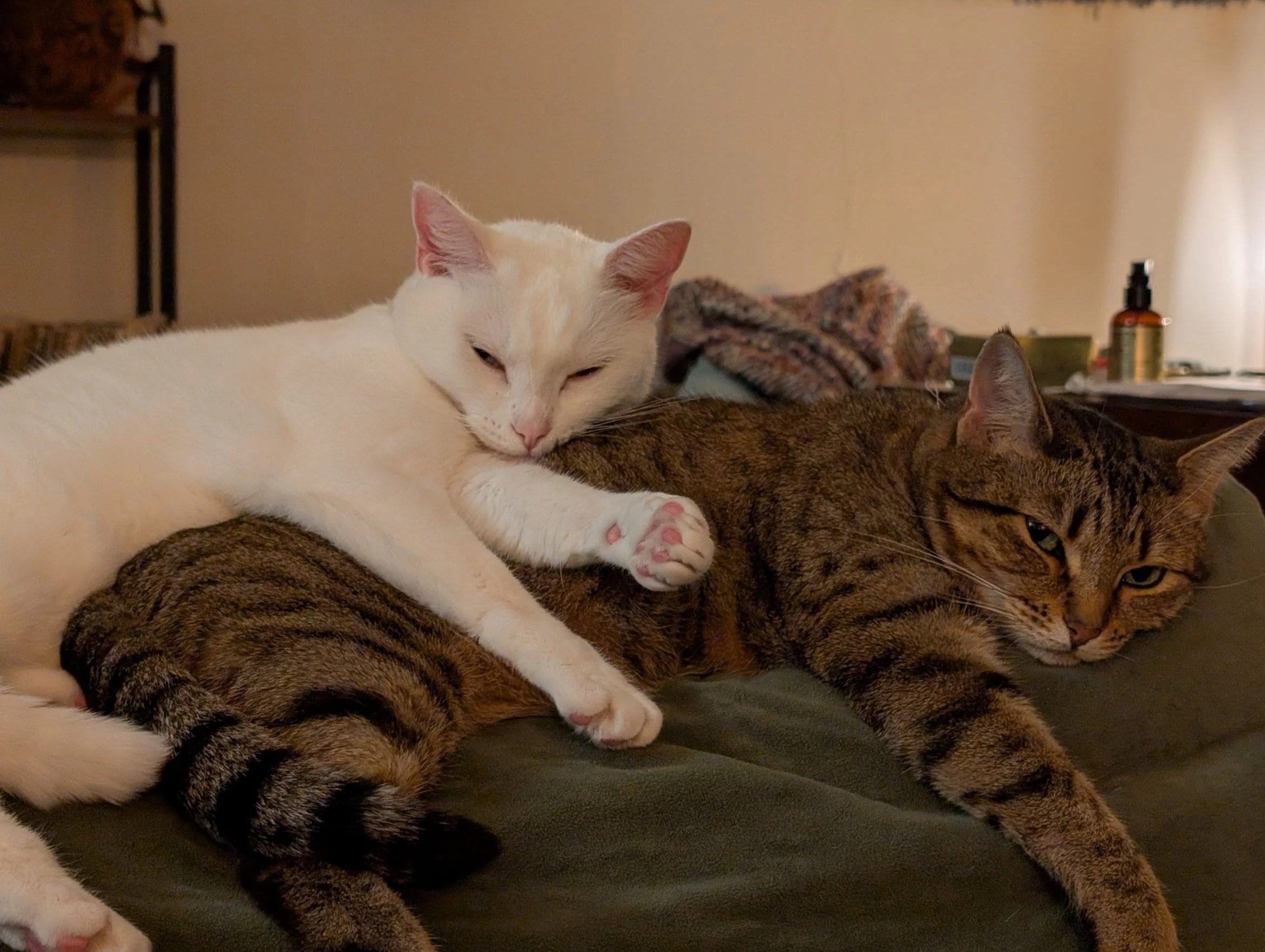Meet Your New Portland Therapist- Chelsea Kellogg LMFT
Looking for a therapist that really gets you? It’s a deep honor for me to help you feel seen, understood, and heard. I especially cherish getting to witness the parts of you that have been most suppressed and marginalized.
So many of us have been harmed in significant relationships and by unjust societal systems. This may leave you feeling lots of shame, self-doubt, anxiety, and isolation. It can also lead to conflict and misunderstandings with the people you care about the most. I know this can all feel like a heavy weight to carry around. At the same time, I believe supportive relationships are one of the things that can be most transformative and healing. And that’s why I’m a therapist-I aim to offer a relationship between us that is tender and spacious, so that you can feel truly seen and supported in all of who you are.
As an anti-oppressive therapist, I aim to model ways of being that are different from those preferred by colonialism, puritanism, capitalism, healthism, white supremacy culture, and corporate America.
My hope is that therapy can lead you to living a more empowered life, in which all parts of you get to be honored. I hold up a lantern so you can walk the sometimes dark and heavy paths life presents, to find a cozy & warm place to land: a place of fulfillment, self-trust, and connection.
“I’ve gotten free of that ignorant fist that was pinching and twisting my secret self.”
My Approach as a therapist:
I offer a gentle structure for therapy so that you don't have to feel adrift in our sessions
I center your goals & ensure therapy sessions focus on what you want to get from this process
I bring in awareness of how larger systems (racism, homophobia, capitalism, ableism, fatphobia, etc) impact you & your relationship(s)
I invite feedback and will always be sure to hear your needs
I bring in exploration of your deeper emotions that can get lost & overlooked
I bring in curiosity about your values & how you can best align with them
I will honor the experiences occurring in your body during therapy, as our bodies can hold a lot
I integrate mindfulness: slowing down to notice all the aspects of your experience
I show up as an imperfect human: I aim to show up authentically as myself in therapy
I have a cozy, informal way of showing up-but I also take your care very seriously
I value cultivating a space where both of us aren’t required to mask, in order to best support your growth
I love working with those who are:
Thoughtful, curious, and reflective
Queer and/or gender expansive
Couples (especially neurodivergent couples)
Kinky
Neurodivergent
Survivors of emotional abuse
Living with CPTSD/Complex Trauma
Living with invisible or visible disabilities, such as autoimmune disorders and chronic pain
Highly sensitive people
People pleasers and appeasers
Perfectionists
More on the anxious side
Fellow therapists
Curious about who I am outside of being a therapist?
I’m a silly, sensitive, playful and down-to-earth person. I have two precious cats (pictured here!). I love cooking with my partner & trying recipes from various cultures- I deeply value cultural curiosity. I really enjoy films and the exploration of our human experience that they offer (the lantern in my logo is actually inspired by the hopping lantern character in Spirited Away, a Studio Ghibli film). I am a big fan a Dropout.tv and enjoy connecting with clients who are also part of the Dropout community. I love to spend time outdoors, especially either urban or forest hiking. If I wasn't a therapist, I could see myself being a florist, as I love flowers and love creating. Watercolor is my favorite art medium.
I am white with European ancestors, female, fat, neurodiverse, disabled and living with autoimmune disorders, middle class, cis-gender, pansexual, and born and raised as a citizen in the United States. As such, I hold identities that are both privileged and marginalized.
In both my clinical and personal life, I prioritize decolonial and anti-racist perspectives and oppose colonialism, imperialism, and occupation in all forms. I am aware that my privileged identities offer me unearned advantage in many ways. This awareness is an ongoing process of constant unlearning, listening, and self-reflection, to which I am deeply committed.
My Credentials, Trainings & Experience:
Licensed Marriage & Family Therapy (LMFT) in Oregon (#T2773)
BA, English Literature, Emphasis in Creative Writing, University of Wisconsin-Madison, 2013
MA, Marriage, Couple, and Family Therapy, Sex Therapy Track, Lewis and Clark Graduate School of Education and Counseling, 2021
Basic Advocacy Training Certificate--Call To Safety
ADHD in Adults: Diagnosis, Impairments and Management with Russell Barkley, Ph.D.
ADHD, Executive Functioning, and Health Outcomes: Implications for Life Expectancy and Clinical Management
Autism Assessment in Adults: Differentiating the Complexities of Autism from Co-Occurring Mental Health Issues
MIGDAS 2- Adult Autism Assessment
ND compass - a couples therapy model for neurodiverse couples
Neurodivergence Competency Training - Intermediate Level
Foundations of Acceptance and Commitment Therapy (ACT)
ACT for ADHD
ACT for Grief and Loss
Foundations of CBT
CBT for Anxiety Spectrum Disorders
Foundations of DBT
Motivational Interviewing for Addictions
Substance Use & Addiction: Effects, Risks, & Harm Reduction Strategies for Clients
Social Rhythm Therapy for Bi-polar Disorder
Transforming the Living Legacy of Trauma with Janina Fisher, PhD: Tools for Survivors and Therapists
Sensorimotor Psychotherapy with Pat Ogden, Ph.D.: Body Oriented Therapy Techniques for Trauma and Attachment
Polyvagal Theory: Principles and Practice for Individuals
Breaking the Cycle of Shame--Dr. Diane Poole Heller
Emotionally Focused Therapy: Individuals, Couples, and Families
Decolonized Nonviolent Communication
Non-Violent Communication Foundations Course
Sex Therapy Master Class with Dr. Marisol Westberg
Gottman Level I & 2 certified
MBNET-Mentalization Based Narrative Exposure Therapy, The Kiln
Surveying the Social Landscape: Autism, Mentalization and Implications for Clinical Practice
Hakomi Mindful Somatic Experiential Therapy, Level 1
Relational Life Therapy Intro course, Terry Real Relational Life Institute
The A in LGBTIA: What is Asexuality? *AND* Clinical Considerations with Asexual Clients Presented by Kristin Lanning LPC
From Gender Dysphoria to Gender Euphoria--The Affirmative Couch
Fundamentals of Bisexual Affirmative Therapy--The Affirmative Couch
Fundamentals of LGBTQIA Affirmative therapy--The Affirmative Couch
Fundamentals of Polyamory--The Affirmative Couch
Mono-poly Relationships in Therapy--The Affirmative Couch
Identity Development around Sexuality, Gender and Relationships--The Affirmative Couch
Shame Resilience and Trans Liberation--The Affirmative Couch
WPATH Standards of Care 8 for Mental Health Professionals--The Affirmative Couch
Systemic Trauma in Couples Therapy: Building Relational Privilege--Akilah Riley-Richardson
Uncovering the Trauma of Racism: Holding Space for Collective Grief and Rage--Dr. Nathalie Edmond
No More Weighting: The Body Trust E-Course--The Center for Body Trust
Healing Body Trust, 3-day Workshop, 2022, Synergy Health and Wellness, Bend, OR
OCD Basics, International OCD Foundation (IOCDF)
OCD in Adults: Symptoms, Assessment and An Introduction to First Line Treatments, NOCD
Fundamentals of Exposure-Based Therapy for OCD and Anxiety Disorders, NOCD
OCD Subtypes: Identification and Treatment, NOCD
How I Can Help:










